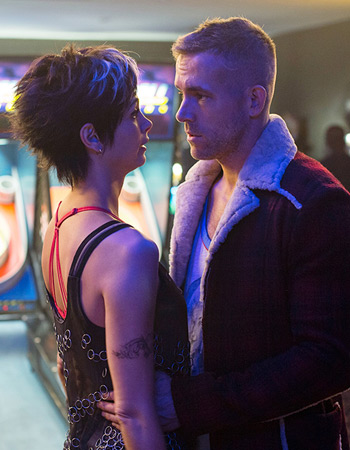Consider Superman, the world’s first fictional superhero. Born Kal-El in the planet Krypton, he came to earth as a refugee. He was rocketed to our planet by his father, moments before Krypton’s destruction.
Raised as Clark Kent by an American farmer and his wife, Superman grew to become, well, a superman—known as much for his cape, costume and extraordinary strength as for his unflinching moral sense. He could, in his own words, “leap tall buildings in a single bound”, but he could never kill, as “nobody has the right to take a life”.
Superman believed, essentially, in three things: truth, justice and the American way. He made his first appearance in the 1930s, when comic books were just becoming popular. He was presented as a beacon of light in a black-and-white world.

Eighty years since, comic books have changed considerably, and so have superheroes. The worlds they inhabit are no longer black-and-white. In fact, no self-respecting graphic novelist (the term ‘comic book writers’ has long been passé) would dare imagine their worlds and their characters in monochrome. Not with the complex, real world we endure every day. And not after what artist Alan Moore and director Christopher Nolan did to the genre.
So, enter Wade Wilson, aka Deadpool—a foul-mouthed, trigger-happy vigilante whose moral sense is, at best, non-existent and whose sense of humour is infinitely better than Clark Kent’s square-jawed blandness. A former special forces operative, Deadpool takes to wearing a mask after an experiment on his body disfigures his face and gives him the superhuman ability to heal himself of even serious wounds. He is, self-confessedly, 'a mercenary with a mouth'.
To put things in perspective: if all superheroes were family, Deadpool would be quite like the gleefully petulant and obnoxiously talkative grandchild Superman would have nightmares of. Exhibit A: during a shootout with bad guys (or badder guys, to be precise), a bullet enters the part of Deadpool where the sun doesn't shine. He turns his rear end towards the camera, so that the audience can have a good look at the bullet's entry point, grimaces and quips, “Now, that went right up Main Street.”
It is difficult to imagine Superman saying something like that. For a guy who flies around in his underwear, he comes across as incredibly decent and incapable of joking. Deadpool, however, revels in acts like that. His wisecracks are meant for the audience—because, unlike other superheroes, he is very, very self-aware—so aware that he knows that he is a fictional character.
Deadpool knows he is in a movie—not just any movie, but a movie of his own. He talks about the pains he took to make it, the plans to make it a franchise, and so on. He even takes a dig at the studio that financed the movie for not spending more on casting.
Plot-wise, it is a terrific conceit: those who are even passively interested in Hollywood can have great fun drawing parallels and spotting references (“I tried the superhero business and I left a mark,” says Deadpool. And Ryan Reynolds.)
The movie is intended as a running, expletive-filled commentary of Deadpool's life and times, and it succeeds well on that front. There is not a dull moment in two hours. And most of the raunchy jokes are audible—which proves that either the folks at the censor board did not get them, or... they did not get them.
It is tempting to call Deadpool a brave, ground-breaking film. But then, you have to ignore the film's cheap production values and the way its plot remains faithful to genre clichés. And, as can be said for all the recent Marvel comic book adaptations, you exit the theatre feeling that you have just watched a very long trailer. One that will spur you on to see the next film in the franchise. You know the sequel, too, will be an extended trailer (hopefully with a bigger budget), but you buy the ticket anyway.
It is a depressing situation for a movie buff—I call it falling for the money-grab hook, line and stinker!
Film: Deadpool
Director: Tim Miller
Cast: Ryan Reynolds, Morena Baccarin, Ed Skrein, Gina Carano
Rating: 3.5







